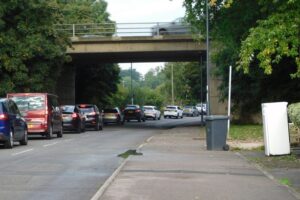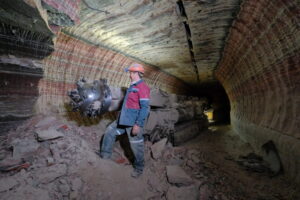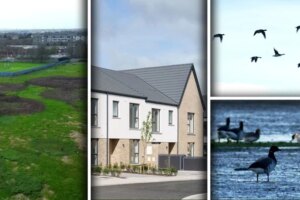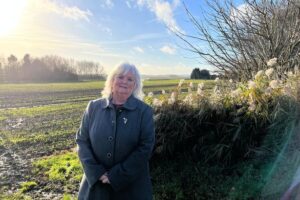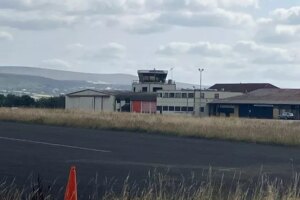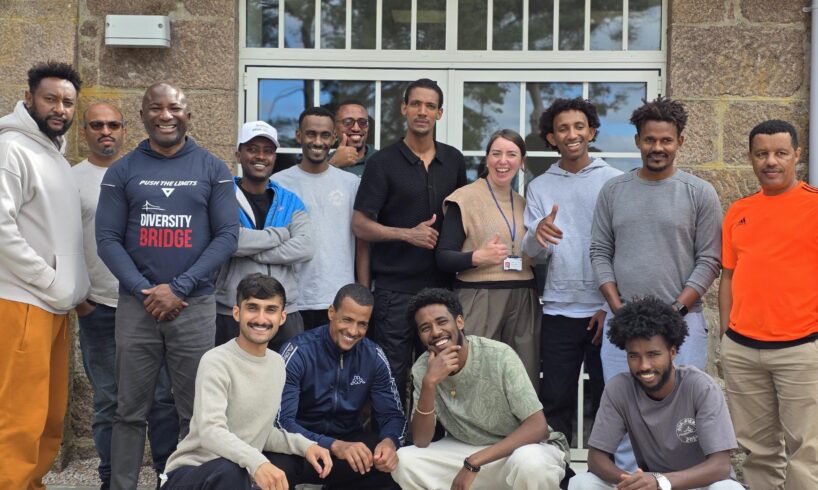
A member of the kirk session at Peterhead New Parish Church said the group helped to “open up access” for families from Afghanistan and Syria who have settled in the town.
The town of Peterhead has seen several refugee families arrive in recent years. She said: “Conversation Cafe has helped to improve language skills in a real setting.
“Two of our helpers did a wonderful teaching job explaining money and the value of the different coins and notes and how they interrelate, using real money and real price tickets.”
Elsewhere in Peterhead, volunteers at St Andrews Parish Church run a language cafe once a month.
“We have coffee and tea and shortbread on a Friday morning,” Jane said. “We speak to mostly women, as men are catered for at Fraserburgh College. Several have young children.
“All of them say they are lonely. Some have had to leave quickly with no family. We do our best to help. I was a primary teacher and two others taught education and music.”
In nearby Westhill, where 300 people are billeted in a local hotel, members of Aberdeen Interfaith regularly gather to chat and make connections.
One volunteer told The Herald: “We received funding from the Scottish Refugee Council to run a programme called ‘You, Me, and a Cup of Tea’ across five venues. This brought local people and asylum seekers together.
“It’s all about trust. There is a lot of mistrust, ignorance, and racism going around right now. But, the more we can meet people, the more they can trust us and we can trust them.”
According to Aberdeenshire Council, cafes are held in four towns on a regular basis, and are supported by the local authority’s refugee resettlement team and an ESOL trainer.
Work is underway to expand the network to two other towns.
However, not everyone is happy to see the arrival of asylum seekers and refugees to the region.
Last month in Peterhead, hundreds of people gathered in the town’s Drummers Corner to protest for the ‘enforcement of immigration laws with transparency’. Speakers included podcasters Craig Houston and John Watt.
Protests have been held across the UK this summer. Asked for comment, event organiser Steven Rennie, who goes by @RightWing_Brit on X, said: “So you can call me a far right Nazi? Nah il [sic] stick to the honest citizen journalists. You know, the ones that do what you lot are supposed to do…. Honest journalism.”
Rennie went on to tell our reporter to ‘quote this’, sending an emoji of a middle finger.
The volunteer with the Aberdeen Interfaith group said: “The news and social media doesn’t help. It is a really hard time for asylum seekers in Westhill right now. There was a large protest outside the hotel two weeks ago, which has actually had a good effect as people are more sympathetic now.
“However, it has had difficult effects as well. After the protest, none of the asylum seekers came to our weekly tennis meet-up, which is just a ten minute walk from the hotel.”
Misinformation about asylum seekers settling in the area has proliferated on social media in recent weeks.
Sea Cadets in the nearby village of Boddam were recently mistaken for refugees, after one resident posted on Facebook: “There was easy 100 of them if not more. Is this immigrants getting put in here dead of night so there not seen or what? Hand on heart there was loads of them.”
The claim spread across social media, leading a local councillor to set the record straight.
Turriff and District Councillor Gordon Lang said: “Spreading misinformation is harmful and potentially dangerous. The sea cadets have just finished their annual camp at the Cadet Training Centre in Boddam.”
Despite the background of rising tensions, community groups are continuing to reach out.
The session member from Peterhead New Parish Church said: “One of our helpers developed a lasting friendship with ‘the old man’ who was actually 30 years younger than himself.
“He visited them weekly, explaining the idiosyncrasies of the English language, taking them shopping and on one occasion, taking a wee granny to the local health centre when she actually needed the supermarket.”
Hundreds of items of clothes were donated. (Image: Unsplash)
The church held a clothing collection for the new arrivals, the session member said, adding: “Such was the supply, that every single pew in the sanctuary was covered in clothing. The folks came, got kitted out for winter and the local charity shops gained too. These asylum seekers and refugees were so humble, appreciative and grateful.”
A refugee from Syria told The Herald about his experiences of settling in Scotland.
“When I first arrived in Aberdeen as an asylum seeker, I was among the very first groups of people to come here. The city was not prepared for the number of arrivals, and the infrastructure for supporting us was still developing,” he said.
Then, he met people involved with Aberdeen Interfaith, and found a second family.
He noted: “I visited different places of worship and met people from different religions and cultures. I was introduced to new faces and new perspectives, and what I felt was generosity and warmth from everyone. It made me feel like I belonged.
“For the first time, I had people I could trust, people who would invite me into their homes and even to their weddings. They cared about me, not only as a refugee, but as a person with skills, talents, and dreams.”
Another asylum seeker said: “People treat me and all my friends [well] and care about us as if we were your family and close friends. We are all human beings.”
Edward Obi runs Diversity Bridge, an Aberdeen-based charity which works with marginalised groups and helps connect asylum seekers with local communities.
Obi told The Herald: “Many asylum seekers are skilled, motivated individuals who want to contribute but are held back by policy restrictions. Another myth is that living in hotels is comfortable — the reality is cramped rooms, months of uncertainty, and deep isolation.
Edward Obi (C) along with two members of the charity’s Digital Inclusion Programme. (Image: Supplied) “And too often people forget the trauma asylum seekers carry with them. What they need most is empathy and the chance to rebuild their lives with dignity.”
The charity boss added: “Communities can create shared opportunities, whether through sport, cultural events, or volunteering, to help people connect and break down stereotypes.
“Integration is a two-way process, and when we invest in making people feel at home, the whole community becomes richer, more diverse, and more resilient.”
Back in Peterhead, volunteers are working hard to integrate New Scots into community spaces, even as tensions rise.
One volunteer, who asked to remain anonymous, told The Herald that they have worked with a number of families from Afghanistan and Syria over the last four years; taking them to the halal supermarket, arranging hospital visits, sorting out utility bills and phone service, and much more.
They said: “It is sad to see that in recent months these families are beginning to feel unwelcome and vulnerable.
“[Many] individuals have absolutely no idea of how these people (even those who are here through irregular means) have suffered in their home countries or on their journeys here.
“We are supporting them as best we can through these tumultuous times.”
Read More:
Right now, life is not easy for these men, women and children; many of whom suffer from trauma and PTSD.
Viewed as a threat by some and a burden by others, they are trapped in a cycle of unrelenting discomfort.
Yet, despite growing anger at a broken system and those who have arrived in this country from parts unknown, ordinary Scots are bridging the divide, choosing to reach out and care for their new neighbours.
And if enough people decide to step up and make a difference, perhaps we can hope that brighter days are ahead.
